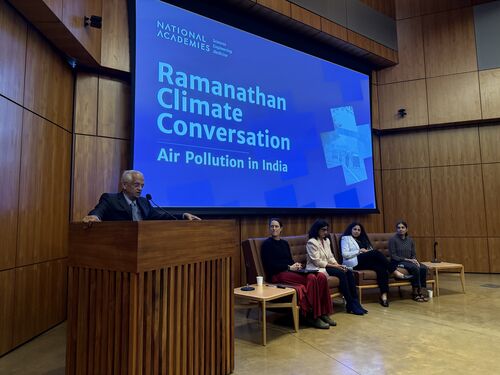What’s the Buzz on Bugs? New Study Takes Flight Ahead of National Pollinator Week
Program News
By Sydney O’Shaughnessy
Last update June 16, 2025
In fields, forests, and backyard gardens, insects are quietly at work securing ecosystems and global supply chains. Over 75 percent of all flowering plants, including many fruits, vegetables, and nuts, rely on insects for pollination. In fact, one out of every three bites of food we eat would not exist without the hard work of bees, butterflies, beetles, and other pollinators. These insects also pollinate the crops that are used for fiber, medicine, and fuel, making them essential to both biodiversity and human well-being.
But the benefits from these six-legged invertebrates don’t stop with pollination. Insects also serve as a major food source for wildlife, play an important role in regulating plant and animal populations, and aid in the decomposition of dead plants and animals. Despite the importance of insects to a functioning society, however, there is clear evidence of widespread insect population decline in both wild and managed populations.
To get a deeper understanding of the current state of insect populations, the National Academies launched a new study focused on assessing trends in insect abundance, identifying research priorities, and suggesting actions to address the changes.
Kate Guyton, the director of the new study, believes the study will build on the decades of work by the National Academies, which has largely aimed to better understand and support the role of insects in ecosystems, society, and the economy.
“The work of the National Academies on this topic is critical for understanding how insects intersect with our lives,” Guyton said. “This study will give us a snapshot of insect health on a large scale.”
Why is the status of insect populations changing?
Some insect populations are declining, for a variety of reasons. Managed insects, primarily bees that are raised by humans for their pollination services, are experiencing population declines mainly due to introduced parasites and pathogens.
Wild insects, on the other hand, face declines due to additional factors including excessive pesticide use, climate change, habitat fragmentation and loss, and resource competition.
Other insect populations, such as invasive species, may be on the rise in certain geographic areas, in part due to the declines in native populations.
What does this study aim to accomplish?
This study will focus on understanding the status of insects solely in the North America continent, which includes the United States, Canada, Mexico, Caribbean, and Central America. The newly appointed expert committee aims to address and reach consensus on several important questions including:
What is the evidence for long-term changes in abundance and diversity of insects?
What have been the actual and potential economic, ecological, and evolutionary consequences of these changes and what are the projected consequences?
What actions can be taken to mitigate changes and ecosystem function losses?
Scott Miller, senior research entomologist at the Smithsonian National Museum of Natural History, was recently appointed to chair the study’s committee.
“Many studies over the last 25 years, and especially since 2017, have raised concerns about declines in insect populations, but the evidence varies across geography and kinds of insects,” Miller said. “Similar to the groundbreaking National Academies 2007 study, Status of Pollinators in North America, we seek to review the evidence on status of populations of insects and related arthropods across North America.”
Together, the study committee seeks to clarify the most important research questions for insect monitoring and provide recommendations that propel interdisciplinary solutions to mitigate insect losses.
“The late E.O. Wilson famously said that “insects are the little things that run the world” and they are vital to pollination and many other ecosystem services,” Miller said. “The 2007 National Academies study on pollinators catalyzed many actions that have benefited pollinators, and we expect that our study will both clarify the way forward and raise public understanding of the issues.”
The study, slated for release in 2026, is being led by the National Academies’ Board on Agriculture and Natural Resources and sponsored by the Grantham Foundation, Moore Foundation, National Academies Presidents’ Committee, Rockefeller Family Fund, and the U.S. Fish and Wildlife Service. Learn more about the scope of the study by visiting the project webpage.
Featured Publication
Status of Pollinators in North America
Consensus Study Report
·2007
Pollinators—insects, birds, bats, and other animals that carry pollen from the male to the female parts of flowers for plant reproduction—are an essential part of natural and agricultural ecosystems throughout North America. For example, most fruit, vegetable, and seed crops and some crops that prov...
View details
More like this
Discover
Events
Right Now & Next Up
Stay in the loop with can’t-miss sessions, live events, and activities happening over the next two days.
NAS Building Guided Tours Available!
Participate in a one-hour guided tour of the historic National Academy of Sciences building, highlighting its distinctive architecture, renowned artwork, and the intersection of art, science, and culture.



